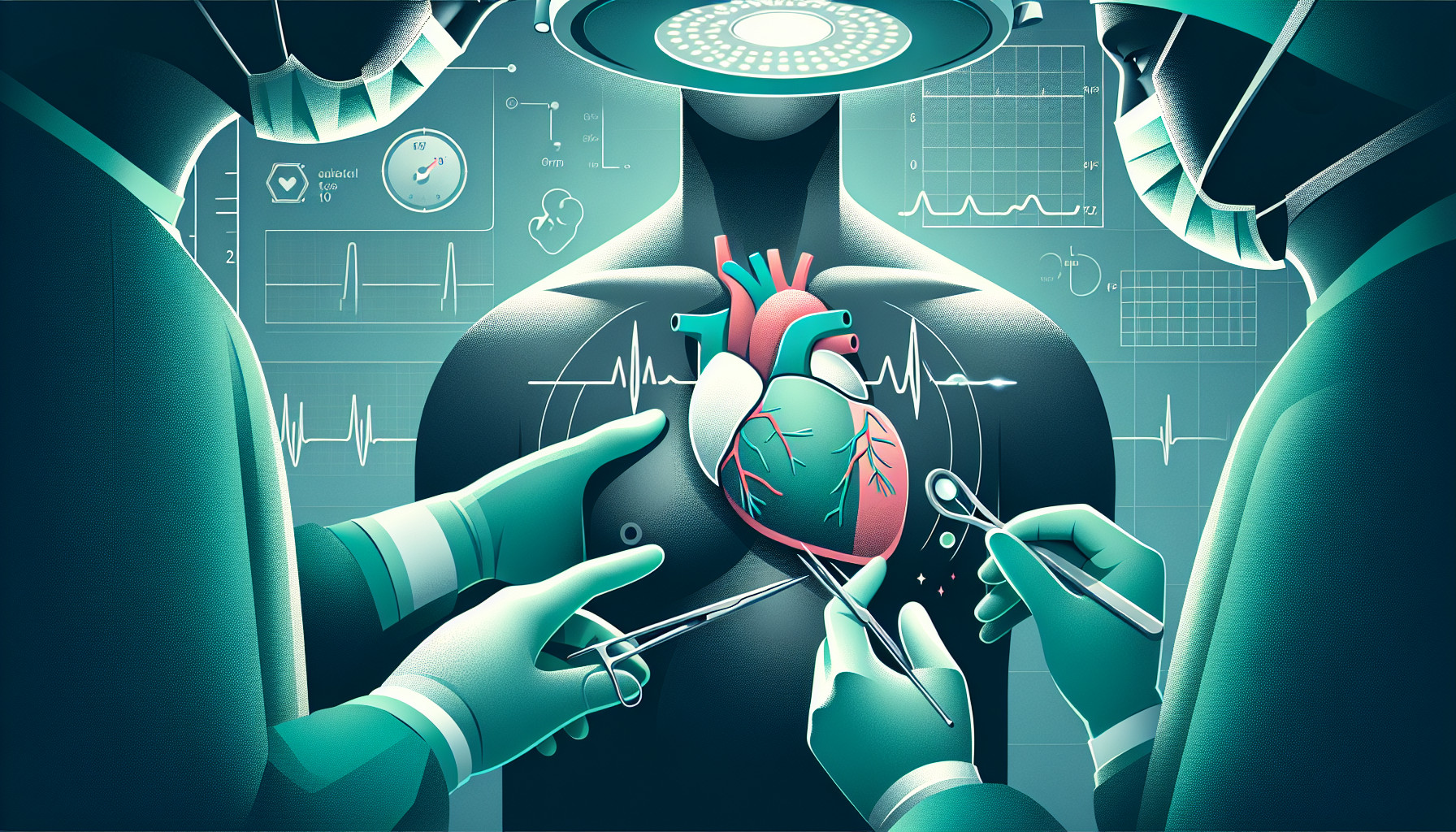Our Summary
This research paper is likely investigating the durability and potential issues with replacement heart valves, specifically the mitral valve. The mitral valve is one of four valves in the heart that helps control blood flow. Sometimes, these valves can fail and need to be replaced.
In this context, “structural valve deterioration” refers to the physical breakdown or failure of these replacement valves over time. The paper also seems to discuss a procedure called transcatheter mitral valve replacement, which is a minimally invasive surgery to replace the mitral valve.
The term “valve-in-valve” typically refers to a procedure where a new replacement valve is inserted within a previously implanted replacement valve that has failed or is failing. This could be due to the structural deterioration mentioned earlier.
In simpler terms, this research paper is about the problems that can occur with replacement heart valves over time, how to replace a failed heart valve using a minimally invasive procedure, and a technique to replace a failed valve by inserting a new one inside it.
FAQs
- What is structural valve deterioration in the context of mitral valve replacement?
- What does the term “valve-in-valve” mean in relation to transcatheter mitral valve replacement?
- What is transcatheter mitral valve replacement?
Doctor’s Tip
It is important to follow up regularly with your healthcare provider after mitral valve replacement to monitor for any signs of infection or complications. Be aware of any new symptoms such as chest pain, shortness of breath, or fatigue, and seek medical attention if you experience any concerning changes in your health.
Suitable For
Mitral valve replacement is typically recommended for patients who have severe mitral valve disease, such as mitral valve stenosis or regurgitation, that is not responding to other treatments such as medication or minimally invasive procedures. Patients with severe symptoms such as shortness of breath, fatigue, chest pain, or heart failure may also be recommended for mitral valve replacement. Additionally, patients who are not good candidates for mitral valve repair surgery may be recommended for replacement instead.
Timeline
Before mitral valve replacement:
- Symptoms such as shortness of breath, fatigue, chest pain, and palpitations may develop over time due to a malfunctioning mitral valve.
- Diagnosis of mitral valve disease through imaging tests such as echocardiography and cardiac catheterization.
- Evaluation by a cardiac surgeon to determine the need for mitral valve replacement.
- Preoperative preparation, including blood tests, imaging studies, and possibly a cardiac catheterization to assess the severity of the valve disease.
After mitral valve replacement:
- Surgery to replace the mitral valve with either a mechanical or bioprosthetic valve.
- Recovery in the hospital with monitoring for complications such as bleeding, infection, or arrhythmias.
- Rehabilitation and physical therapy to regain strength and function.
- Long-term follow-up with the cardiac surgeon and cardiologist to monitor the function of the new valve and manage any complications that may arise.
What to Ask Your Doctor
- What is the reason for needing a mitral valve replacement?
- What are the different types of mitral valve replacements available and which one would be best for me?
- What are the risks and potential complications associated with mitral valve replacement surgery?
- What is the expected recovery time after mitral valve replacement surgery?
- How long will the mitral valve replacement last?
- Will I need to take medication after the surgery and if so, for how long?
- What lifestyle changes should I make post-surgery to ensure the success of the mitral valve replacement?
- How frequently will I need follow-up appointments and monitoring after the surgery?
- Are there any restrictions on physical activity or diet that I should be aware of after mitral valve replacement?
- What signs or symptoms should I watch for that may indicate a problem with the mitral valve replacement?
Reference
Authors: Leroux L, Ternacle J, Bonnet G, Dijos M, Jonveaux M, Pernot M, Lafitte S, Labrousse L, Modine T. Journal: JACC Cardiovasc Interv. 2023 Jun 26;16(12):1531-1536. doi: 10.1016/j.jcin.2023.03.018. Epub 2023 May 17. PMID: 37380237
